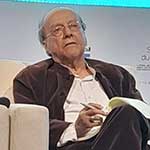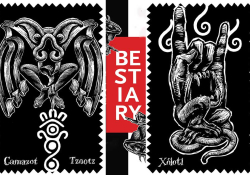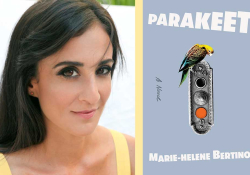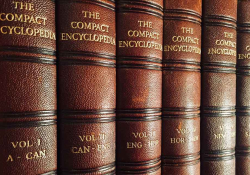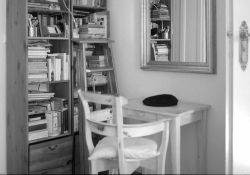Letter to Mohamed Choukri: Writing between Silence and Prattle
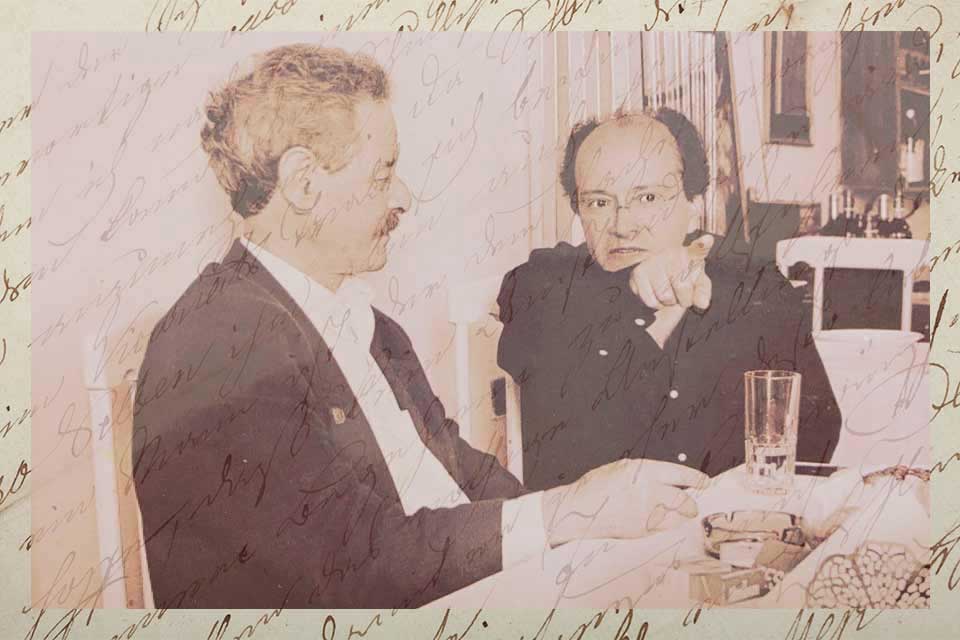
In the introduction to Mohamed Berrada’s Ward wa Ramād (Flowers and Ashes, 2000), a work featuring the correspondence between Berrada (b. 1938) and Mohamed Choukri (1935–2003) that spans almost two decades, Berrada describes his first meeting with Choukri:
أول مرة تعرفت فيها على محمد شكري، حين التقيته خلال عطلة صيف 1972 بشارع باستور بطنجة...كان يمسك برسن كلب كبير ويمشي بتلقائية وسط زحمة الناس. كنت قد قرأت له نصوصا بمجلة "الآداب" وسمعت أخبارا مليئة بالمبالغات عن حياته الخاصة. تواعدنا على اللقاء في المساء. ولفت نظري خلال محاثتنا التي امتدت إلى ساعة متأخرة من تلك الليلة، أن شكري أبعد ما يكون عن الصورة التي يرسمها له المعجبون: كان رزينا في حواره، وعقلانيا في حججه، جريئا في طروحاته ونقده لما يقرأ. لم يكن مشدودا إلى "أسطورة" ماضية، بل كان مفتح العينين على حاضره، يعيش أقرب ما يكون إلى الواقع المعقد المتسارع في تحولاته. وأعجبني أنه لم يكن يلغي ذاته وهو يتحدث أو يختبئ وراء العبارات الأدبية التي يلجأ إليها الكثير من المثقفين.
I first met Mohamed Choukri in the summer of 1972 on Rue Pasteur in Tangier. He was walking casually through the crowd, firmly clutching the leash of a large dog. I had read his literary works in the journal, Al-Adab, and had heard exaggerated stories about his private life. We arranged to meet later that evening. What struck me most during our conversation, which lasted late into the night, was how different Choukri was from the image portrayed by his admirers. He was articulate and rational, bold and courageous in his opinions, whether in his interpretations or his critiques. He wasn’t bound by old myths; instead, he focused on the present, living as close as possible to the rapidly changing reality. I admired the fact that he didn’t retreat into literary clichés or seek refuge in the comforts of intellectual platitudes.
The year 1972 marked the beginning of a deep friendship that lasted until Choukri’s death in 2003. Ward wa Ramād documents this enduring bond through more than a hundred letters that chronicle their daily lives, the trials of the writing process—including censorship and rejections—the literary and cultural landscape of Morocco, and Choukri’s eclectic musical tastes, which he frequently shared with Berrada. Among other topics, the letters delve into Choukri’s struggles with alcoholism and his time in a mental health institution in Tetouan. These letters vary in length from a single paragraph to more than two pages. They reveal some previously unknown stories and anecdotes, highlighting the close connection between these two prominent writers.
Berrada, who served as president of the Moroccan Writers’ Union from 1976 to 1983, played an important role in the development of Moroccan literature. Based on his stature as a university professor at Mohamed V University in Rabat, he was able to pay close attention to Choukri and his early writings and to act as a liaison and sometimes a protégé, introducing Choukri to prominent figures in the literary world. They included the renowned Moroccan writer Taher Ben Jelloun, who initially annoyed Choukri by writing an article in the cultural section of Le Monde in which he described Choukri as an illiterate and a street storyteller (as we read in a letter from Choukri to Berrada dated March 9, 1977). Berrada had to immediately call Ben Jelloun and ask him to apologize to Choukri. Later, Ben Jelloun and Choukri resolved this contretemps, and Ben Jelloun translated Choukri’s groundbreaking “novelistic autobiography,” al-Khubz al-Hāfi, into French as Le Pain Nu. Berrada also facilitated the publication of Choukri’s first short-story collection, Majnūn al-Ward (Flower Crazy), by reaching out to Suhayl Idris, the Lebanese editor and novelist, in 1979. Two years earlier, Berrada had published the first chapter of Al-Khubz al-Hāfi (For Bread Alone) in Afāq, the literary journal of the Moroccan Writers’ Union.
The letter below, written by Mohamed Berrada eighteen years after Mohamed Choukri’s death, retains the same style and form as the more than one hundred letters they exchanged over two decades.
*
Rabat
November 17, 2021
To be honest, I do not know what has compelled me to write this letter, during my visit to Morocco after a lengthy absence. Perhaps it’s this feeling of being homesick that leads me to seek shelter in the shade of your generous friendship, despite your premature departure from life. I have felt as though friends who are still alive are preoccupied with a new phase, as they put all their efforts into escaping the coronavirus and embracing changes that the government promises to make as a model for “growth” in order to exit the twirling maze within the constellation of slogans and empty promises.
The reason doesn’t matter, because I need someone who can read my letter with an accommodating heart, comprehending the meaning between the lines. I realize that you won’t respond to my letter as you used to do in the days of Roses and Ashes. Even so, I can still imagine my letter reaching you wherever you are. To clarify my reasons for writing, I would say that what has led me to write to you is the general social context that has become incomprehensible to me. But I envy friends who “hurriedly decided” to leave the world, thus avoiding the stage of decline that now leaves us helplessly watching the collapse of the values and dreams that we clung to in our youthful dawn when once again we embraced the illusions of this world …
I couldn’t bear visiting Tangier after you were gone, fearing that I might miss that magical climate whose threads you knew how to weave.
It’s as though you are all there, beyond the clouds in the sky above, giving us sympathetic glances, wondering why we are still following the same path. To be perfectly honest with you, I couldn’t bear visiting Tangier after you were gone, fearing that I might miss that magical climate whose threads you knew how to weave, clothing space, people, and memories in a new, multicolored soul. With you, Tangier seemed like a fertile womb, never ceasing to create surprises and weave tales. That is why I have considered you, as part of your existence, to be a creation of that mythological city, one that knew how to incorporate the Caves of Hercules and the waves of the Atlantic and Mediterranean; a daring author like you, who managed to break the silence and unveil what traditions and enforced purity had tried to hide.
For that reason, your For Bread Alone was a hearty meal that revitalized readers’ appetite and forced Moroccan novelists to reconsider the courses between which they were swinging, romance, realism, and an avant-garde too quickly and prematurely adopted. Your arrival on the literary scene was an alarm bell for writers who regarded writing as a readily available recipe taught in university lectures or through memorizing poetry, thus filling the mind with wheat and chaff. You removed the mask and revealed those hidden aspects that a person experiences with his entire being, as he confronts the unfairness of society, the injustice of colleagues, and the angst of alienation and destitution. I have now realized that, in spite of everything, you are still in control of your own destiny. You demand freedom from the illusions of a society that is imprisoned by customs and values incompatible with the freedom of body, behavior, and speech …
Before you started writing, you would be speaking in the midst of life’s turmoil as you confronted your fate and confirmed your existence. When you learned to read and write at a late age, you realized that you had to write the things that official history had neglected and everyone had conspired to forget. But you rapidly realized that, if writing is based on the prattling of others or the reproduction of what the mind has absorbed from other people’s writings, then it is prone to perils and pitfalls. That is what you stated in one of your letters after I had published a chapter of For Bread Alone for you in Afāq magazine. In that same letter you said: “How I wish I could be far away, in a country where nobody knows me. Then I could have a first friend again, a first enemy, a first job I hadn’t had before, an endless series of firsts” (12–21–1977).
Around the same time, while you were staying at a mental hospital in Tetouan, you used this comparison to describe for me the pressures and responsibilities of writing: “I’ll be here for another month, then return to Tangier and resume my work, fixing the patterns of my lifestyle. I’ll live sanely and die crazy. ‘Don Quixote’ by contrast lived crazily and died sane.” Yes, that is the greatest defeat awaiting us: the realization at the end of the road that nothing changes according to our wishes, or it becomes clear to us that it changes according to logic and priorities stemming from our understanding, and from the aspirations of Don Quixote, the naïve dreamer.
I have also remembered you through something that your favorite author, Henry Miller, said: “I write so as to remain silent for the time that remains. It’s as though writing renews our ability to be silent in order for us to absorb the mysteries that surround, question, and engulf us.” But the noise, clamor, and constant repetition are what pervades the scene here; in fact, it pervades all parts of the world that are without compass in the face of Covid-19, the imbalance of nature, and environmental collapse …
Perhaps you would’ve found yourself meandering aimlessly, lost in the cacophony of social networks, repulsive comments, appalling aggression, and mummified prattle … and so on, while exploring the manuscripts and novels being published. Like me, you might pause at the writings of a young woman influenced by the nebulous climate which ravages the horizon in front of those who seek to embrace life. She will be exposed to those writers who simply repeat what they have recorded in dozens of published books, equaling in number the lengthy period of years they have been alive. That is the tradition of literature and life: creativity for amusement, entertainment, chatter, and repeated phrases; creativity inspired by the “secret wound” and by questions of existence intended to address the kindred spirit and communal conscience. Perhaps thereby the area of the unknown can be reached, the one described by the poet Rilke: “the longer our silence extends, the easier it is for the unknown to reach our depths.” Yes, indeed, silence strengthens our connection to the unknown that may add novel elements to our life. In creative writing, we are presented with pages in which the author is forced to remain silent, allowing the reader to guess what is inexpressible through phrases and common language. It is as if the transmission to the reader of the virus of silence facilitates the grasp of the inexpressible. Do you remember the evocative short novel, The Silence of the Sea, published under the pseudonym “Vercors” in 1942 during the Nazi occupation of France? It is eager to point out that the writing maintains a necessary silence, apart from the fact that it makes readers live, on their own terms, the adventure of decoding that blaring silence with its intimations of the dark shadows of tragedy …
That is the tradition of literature and life: creativity for amusement, entertainment, chatter, and repeated phrases; creativity inspired by the “secret wound” and by questions of existence intended to address the kindred spirit and communal conscience.
As I conclude this letter, I need to tell you, who are absent/present, that the silence I am attempting to approximate is one that, alongside its aesthetic and expressive role, acquires a moral value that is transformative, but without deceiving the reader by marketing a creativity accompanied by noise, exaggeration, and “phony constructions,” claims of leadership and globalism, along with other kinds of conquest unknown to me. Such creative work will only find genuine evaluation in the realms of silence and seclusion. The reader and critic can then voice their opinions, far removed from artificial influences. That is precisely what Roland Barthes describes with such telling accuracy and intelligence, noting: “… here then, our search must begin. At this moment, when authors define and decide upon the opinions that they declare, the slogans they defend, the statements they sign, the conferences they attend, and the magazines they write in, at that very point they disappear behind their creative work and impose silence upon themselves, opening a space for literature to emerge from behind them in its seclusion under the gaze of history and truth.”
I believe that this metric expressed by Barthes is not concerned with the percentage of people who make distinctions between creative art, kitsch art, entertainment, and the regurgitation of memory. It is also a valid metric for distinguishing creativity and the lack thereof in a field like ours. It has no need to rely on basic conditions in order to regulate the free and necessary relationship between creators, readers, and critics; that is, the relationship which is not subject to flattery and friendship, and does not allow for the fabrication of honorary rituals, which some authors seek to present, either publicly or under wraps.
Translation from the Arabic
